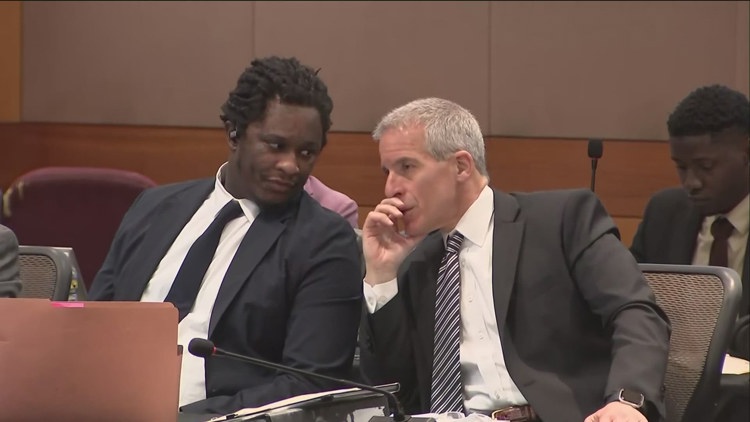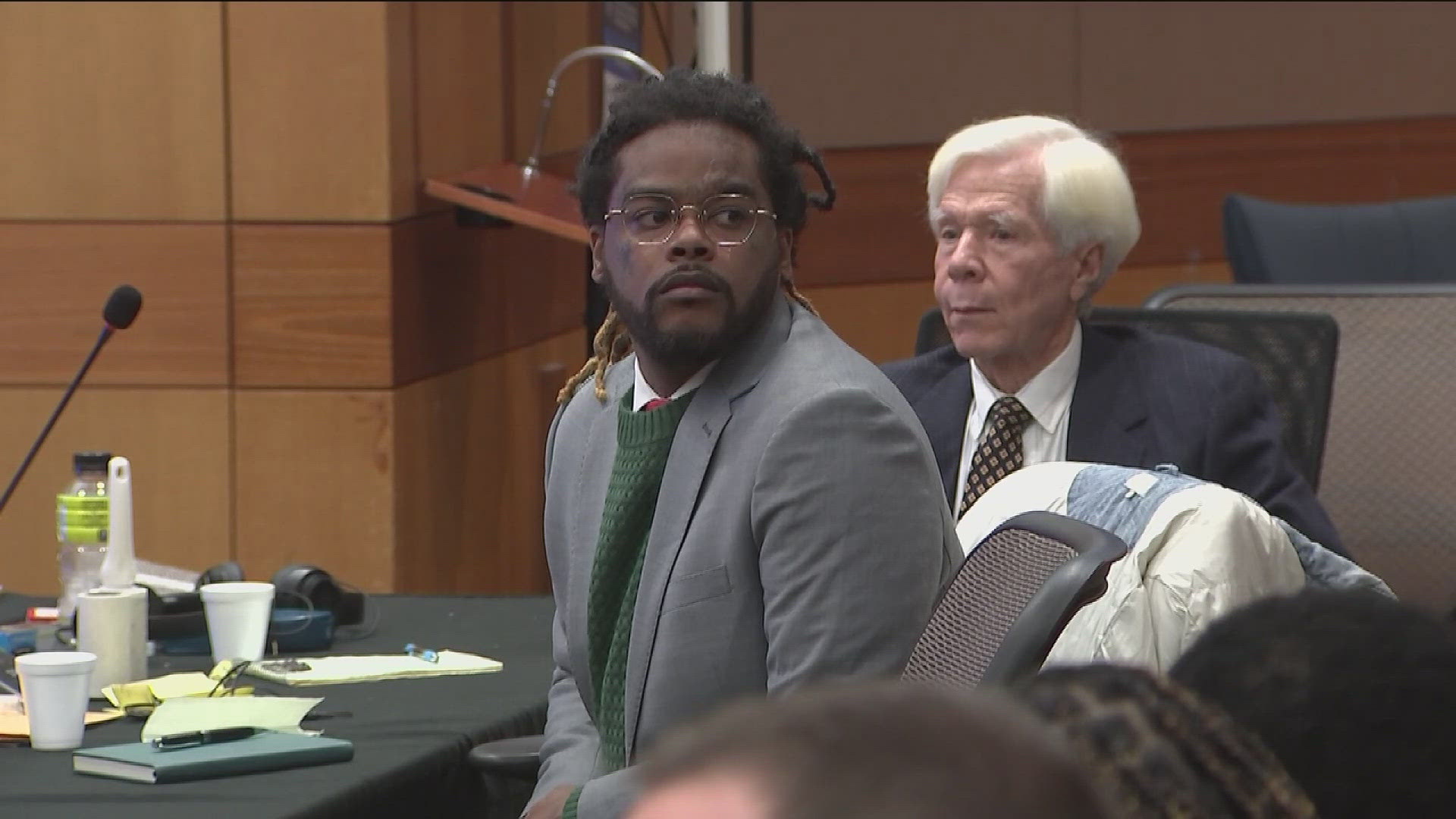ATLANTA — The RICO trial involving rapper Young Thug and the alleged YSL street gang resumed on Tuesday morning with a major motions hearing following an interruption of the trial that resulted in the recusal of the original judge overseeing proceedings.
The hearing before Judge Paige Reese Whitaker began at 8:45 a.m. ET.
Among the motions argued were a renewed push by Young Thug's attorneys for bond for the rapper, who has now been in Cobb County Jail more than two years since his original arrest in the case.
Key Points Made in the Motion
- Presumption of Innocence: The motion states that Young Thug is presumed innocent until proven guilty. His attorneys argue that the prosecution bears the burden of proving by clear and convincing evidence that Williams should be denied bond.
- Community Ties: Williams, who was born and raised in Atlanta, has strong roots in the community. He has resided in the city his entire life despite his international music career. Williams' family, including his six children and parents, also live in Atlanta. His attorneys highlighted his longstanding presence and commitment to the community as evidence that he is not a flight risk.
- Employment and Legal History: Williams has been gainfully employed since a young age, rising to prominence as a recording artist. He has a history of responding to legal processes, with no prior instances of failing to appear in court.
What are the Proposed Bond Conditions
To address concerns about community safety, Williams' attorneys proposed strict bond conditions. These include 24/7 monitoring by off-duty law enforcement officers, house arrest with an ankle monitor, and stringent visitor approval processes. The motion also suggests that Williams' communications be monitored to prevent any risk of witness intimidation or obstruction of justice.
Along with those, the motion also speaks to the alleged harsh conditions, adding that Williams is being confined to a small cement cell for 22 hours a day, with no human contact except during legal visits and court appearances. The conditions are described as torturous, with inedible food and foul living quarters.
The attorneys also addressed the four-prong test used to determine bond eligibility, asserting that Williams is not a flight risk, does not pose a significant threat to the community, is not likely to commit a felony while out on bond, and will not intimidate witnesses or obstruct justice.
Watch the full hearing below
More on recent case developments
The case's initial judge, Ural Glanville, was removed after attorneys for Young Thug had argued that he should no longer oversee the case because of a June 10 proceeding known as an ex parte meeting that became the subject of deep contention in the trial.
In her order, Judge Rachel Krause -- who was assigned the recusal matter -- stated, "This Court has no doubt that Judge Glanville can and would continue presiding fairly over this matter if the recusal motions were denied, but the 'necessity of preserving the public's confidence in the judicial system' weighs in favor of excusing Judge Glanville from further handling of this case."
The controversial private meeting, at which Judge Glanville, prosecutors and a witness were present without defense attorneys involved, led to Young Thug's attorney Brian Steel being held in contempt and sentenced to a 20-day jail sentence, which has been reversed after the state Supreme Court granted him bond.
Steel had been held in contempt for refusing to reveal his source for how he heard about the ex parte meeting.
Judge Glanville later released the transcript of the meeting with the witness, Kenneth Copeland a.k.a. "Lil Woody."
Copeland was arrested on June 7 and held in contempt after refusing to testify on the stand as part of an immunity agreement. A few days later, in the judge's chambers, prosecutors shared an email sent to them by Copeland's attorney accusing them of making him a target by forcing him to testify. They also said his attorney was threatening to pull out of the case.
Prosecutors later told Copeland that if he still refused to take the stand, he could be in jail until every defendant had their cases decided. He did eventually testify.
Copeland had an attorney present for the meeting, but she was a stand-in for his usual lawyer, who was out of town. Steel insinuated that the court was committing "coercion" as no representation for his client was invited to the meeting.
The extraordinary turn in the case captivated legal observers.



